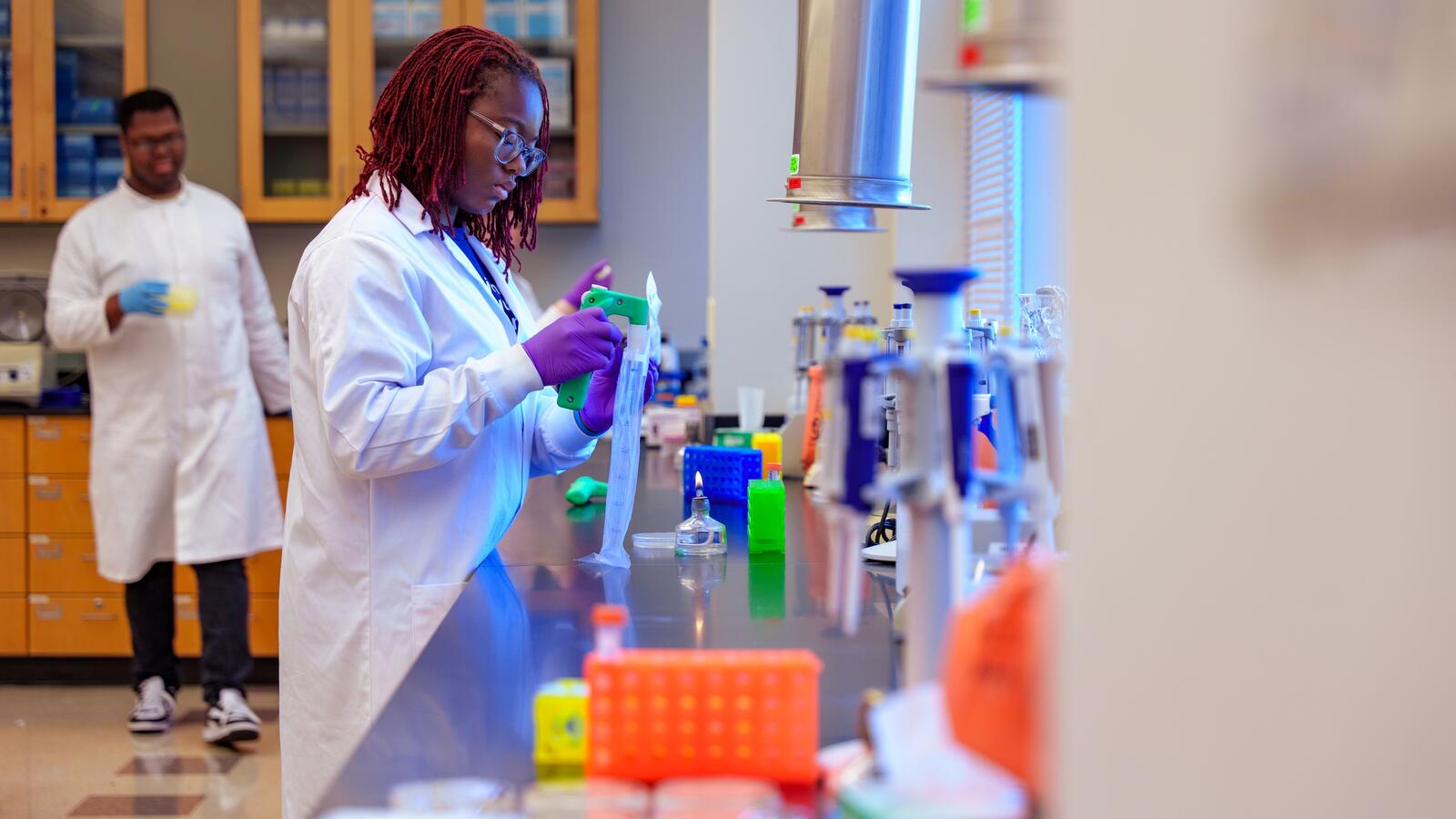In July, Morgan Godwin gathered soil samples in the garden beds behind Mary M. Townes Science Building and near the bull sculpture outside the North Carolina Central University (NCCU) Art Museum.
After noting the GPS coordinates, Godwin and her lab partner brought their soil samples to a laboratory in Townes and isolated bacteriophage (a virus that infects bacteria) from the dirt and then purified it to identify single phage populations. Next, they made sure the phage was concentrated enough so they could extract DNA and examine it with an electron microscope.
“The ultimate aim is to add to a database at (grant funder) Howard Hughes Medical Institute (HHMI),” Godwin said. “There are also potential medical opportunities for antivirals, antibiotics and treatments for bacterial infections.”
This is the first time Godwin, a sophomore from Elizabeth City State University, has worked in a laboratory. She is one of 13 students from six historically Black colleges or universities taking part in the Science Education Alliance – Phage Hunters Advancing Genomics and Evolutionary Science (SEA-PHAGES) program on the campus of NCCU.
Participants are nominated by faculty at their home institutions and then interviewed by HHMI.
At NCCU, the SEA-PHAGES summer program is overseen by Gail Hollowell, Ph.D., professor and chair and Lindsey Costantini, Ph.D., assistant professor, both from the department of biological and biomedical sciences. Guest faculty from other institutions visit NCCU for two-week stints to work with the student-participants.
“This is a big deal for undergraduates to have this early exposure to research,” Hollowell said.
Participants receive a stipend and reside in a residence hall during the eight-week summer program. Mondays are reserved for professional development while Fridays are for community building. The rest of the week is about research.
“We are trying to expose students to an environment, so they get to feel what it’s like to be a researcher,” Costantini said.
This is the first time that Justin Acheampong is conducting scientific research. A sophomore at NCCU, Acheampong lists some of what he’s learned.
“Working with different bacteria, pipetting techniques, different measurements, how to take care of our stations while working with different materials,” Acheampong said. “If I go to a different lab, I could apply that knowledge.”
Acheampong said the biggest challenge is being patient. “With science, it’s a waiting game,” he said. “You wait for results and hope for results. When you figure out there are no results, you try again.”
Eric Saliim, an adjunct associate professor at NCCU, said he sees the students increasing in confidence.
At first, “a lot of time they would defer to me for answers,” Saliim said. “Over the course of six weeks, they’ve taken ownership of what the next steps should be.”
And that is great.
“I want them to leave here with confidence that they could walk into a lab at any institution,” Costantini said.
“And to be an analytical thinker,” Hollowell said. “Why is this working, why is this not working, based on my results, is there something I can add to the literature.”
